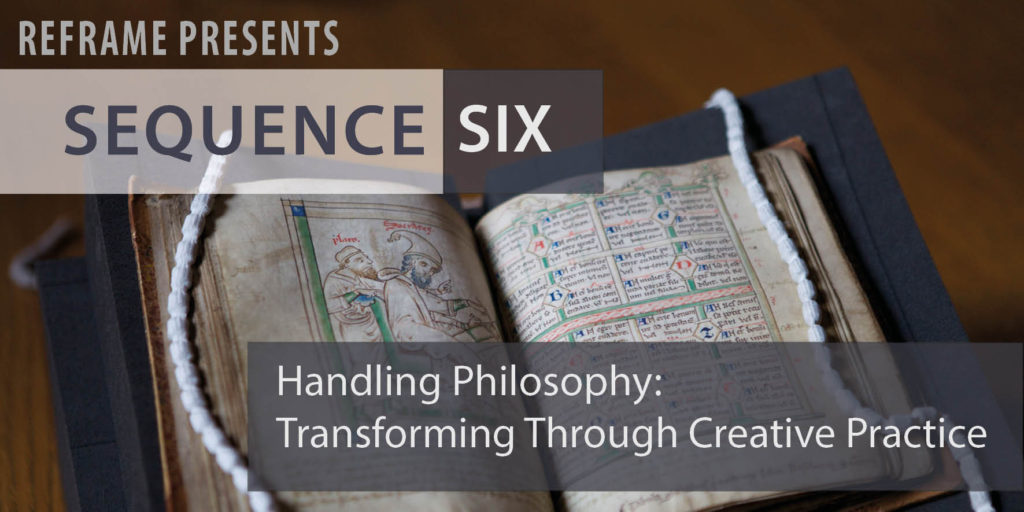
We are delighted to present the latest issue of SEQUENCE on philosophy and creative practice
The SEQUENCE is inaugurated by Joanna Callaghan’s article ‘Ontological Narratives: ways of being in film‘. https://reframe.sussex.ac.uk/sequence6/sequence-6-1/
This SEQUENCE asks, what is philosophy for? The question is a pragmatic one born from a love of philosophy and a concern over its future. How can philosophy renew itself? Can it be a tool, in the Heideggerian sense, of being ready-to-hand, to be used creatively and imaginatively to do things and produce ‘stuff’, beyond the academy and ‘in the world’? Creative practice offers such possibilities. However a praxical approach to philosophy is a radical intervention that requires a re-configuration of philosophy’s self-identity. There is a tension between the open-endedness of practice and philosophy’s totalising structures and logo centrism. For Michèle Le Dœuff ‘..philosophy is just the formal idea that discourse must involve exclusion’ (1977: 7). She suggests that philosophy must abandon its desire to be a theory which leaves no room for lack of knowledge and that there must be a transformation of the relations of individuals to the enterprise that is philosophy. This means re-thinking philosophy’s subject as an individual but also that philosophical work be seen as part of a collective and enterprise, rather than as a product of individual initiatives (1977:11). These suggestions can be mobilised through creative practice. Practice is always open ended, and not-knowing, possibly never knowing, is an inherent driver. Much creative practice is also collaborative, feeding off the interactions with other makers and contributors. Such methods prioritise tacit and embodied knowledge, allowing it to surface, and through iterative processes, be transformed into new kinds of knowledge. Practice is also egalitarian in its approach to ‘theory’ and irreverent in its use of it. Borrowing, repurposing and misunderstanding is part of what practice does to theory. This is why practice matters. It offers a framework to test, explore and elaborate theoretical ideas, forcing them to be in the world and to do stuff to other stuff. This edition of SEQUENCE will explore a praxical approach to doing philosophy. What happens when creative practitioners intervene in philosophical discourse? What do such interventions produce and how do these reconfigure epistemological boundaries?
The first article in this new SEQUENCE is Joanna Callaghan’s ‘Ontological Narratives: ways of being in film‘.
As usual, as we are sequentially inviting responses to the first entry in this iteration of SEQUENCE, Callaghan’s article also constitutes a Call for Contributions for further Handling Philosophy sequences. If you’re inspired to respond, especially if you have practice or written research work in progress on any of the topics raised by her essay, and/or the SEQUENCE title, in relation to any relevant cultural or communications medium, please get in touch with us at SEQUENCEserial[at]gmail[dot]com. Multimedia responses of all kinds are also very much encouraged. But it would be worthwhile to discuss any substantial idea with us at an early stage in your planning. All contributions need to comply with UK copyright law and the current understanding of fair dealing. Contributors should note that their submissions will be formally peer-reviewed. But there are no editorial prescriptions on length or content, except that your work should be some kind of ‘sequential response’. If you don’t want to take part right away, you can still enter the ‘chain’ of responses later on. SEQUENCES may be long and short in all sorts of ways.
SEQUENCE Six is being co-edited by Katherine Farrimond and Russell Glasson (co-editors of the SEQUENCE project), with Professor Joanna Callaghan

Pingback: REFRAME Round-up Summer 2021 – New Open Access Digital Scholarship and Research – REFRAME